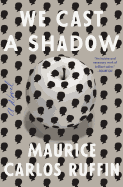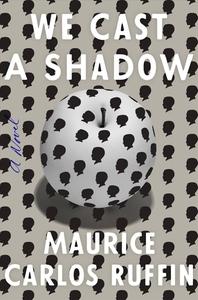
 The racist world created in Maurice Carlos Ruffin's provocative near-future novel We Cast a Shadow is disturbing but not far-fetched.
The racist world created in Maurice Carlos Ruffin's provocative near-future novel We Cast a Shadow is disturbing but not far-fetched.
The novel is narrated by an unnamed black father who lives in an unnamed city in the American South. Though in the recent past race relations appeared to be improving, things have deteriorated quickly between the city's poor black inhabitants and its more affluent white majority. The father is a lawyer who is married to an activist white woman named Penny. They have a young biracial son named Nigel. The narrator's extended family still work and live around the city's Tiko housing project, though his father, Sir, is in prison for getting in a fight with an abusive police officer.
The racism depicted in the novel operates on many levels. The little things add up. The narrator is mistaken for waitstaff, even a mugger. His coworkers of color are obsessed with whiteness, getting plastic surgery to change their noses and lighten their skin. The narrator is added to his law firm's diversity committee after beating out other black candidates in an outlandishly racist competition. He must work with the Blind Equality Group, or BEG, on a community campaign. The organization spouts tenets of color blindness but is inept at dealing with systemic inequalities. The more speculative yet still realistic aspects of the book include a dreadlock ordinance that allows police to cut off the dreads of African-Americans, intrusive police patrols wherever black people have moved into the white suburbs and even deportation of some black people.
Ruffin skewers institutional racism with style and wit. But he also reveals the insidious nature of racism and the complex psychology of the marginalized. For the narrator is also obsessed with whiteness, so much so that he begins expensive skin treatments for his own son. Nigel has a dark birthmark that seems to be growing larger as he nears his teenage years. Listing all the ways his son will be hurt by society as he grows older, the narrator makes an impassioned plea. "A dark-skinned child can expect a life of diminished light," he says. That his own wife and son are against the treatment makes the narrator even more desperate. The novel becomes his missive to the reader, his only recourse, as he tries to justify his actions.
We Cast a Shadow boldly explores race in America as few novels have. Ruffin tackles his subject matter with lively prose and an entertaining plot. --Scott Neuffer, writer, poet, editor of trampset
Shelf Talker: A black father takes desperate measures to protect his son from racism in this hard-hitting speculative novel.

